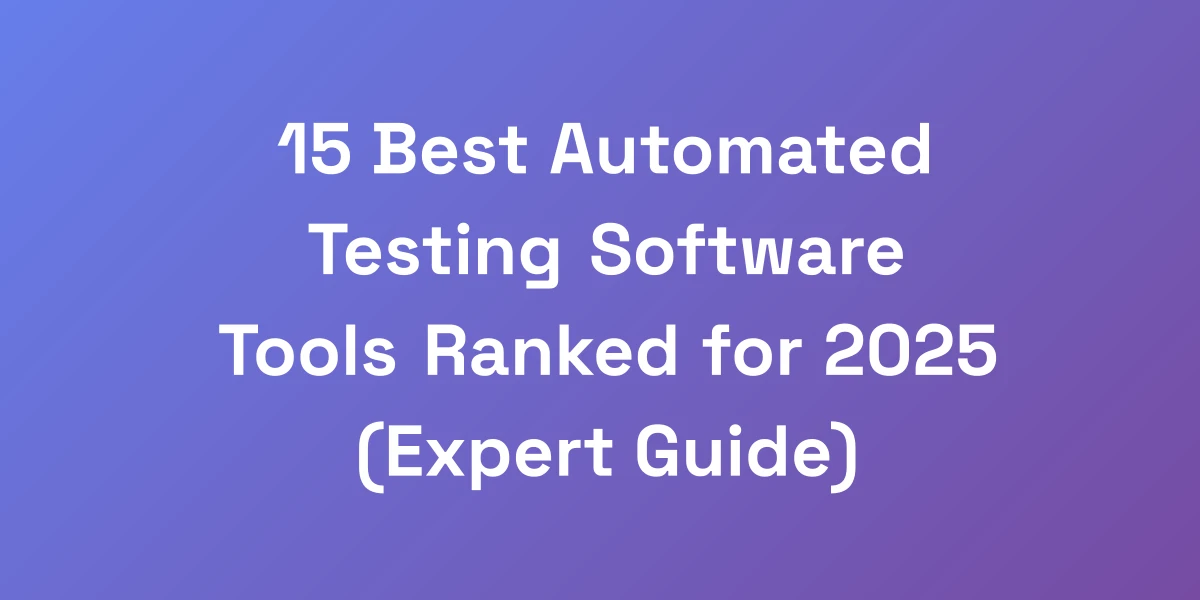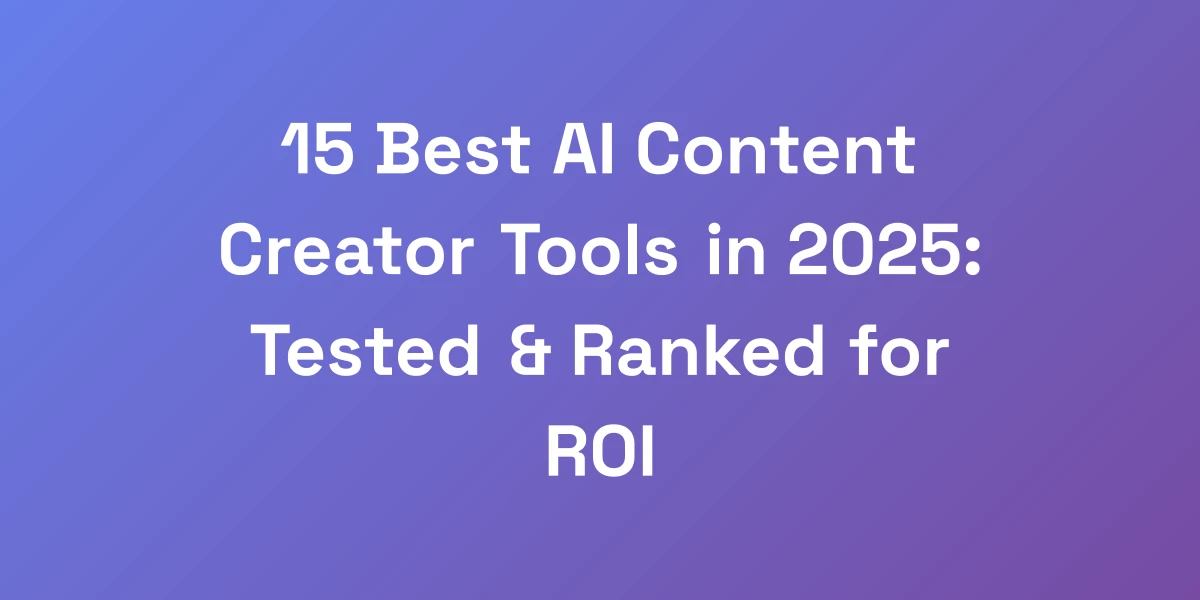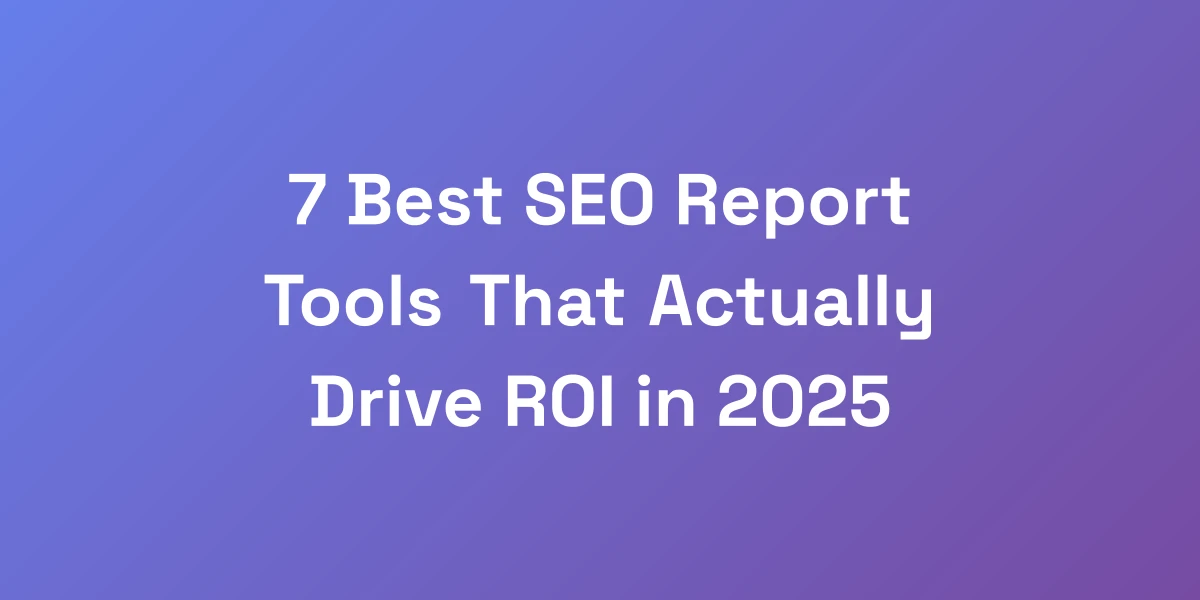15 Best SERP Tracking Tools Ranked By ROI Impact (2025 Guide)
Apr 10, 2025 | By zishansami102@gmail.com
Why 99% of SEOs Fail Without a Proper SERP Tracking System
Let me hit you with some truth: if you’re not tracking your search rankings properly, you’re literally burning money. I’ve seen businesses waste thousands of dollars on SEO campaigns without proper SERP tracking.
Here’s the deal – it’s not just about knowing where you rank. It’s about understanding the entire SERP landscape and how it impacts your bottom line. The right SERP tracking tool isn’t a cost – it’s an investment that pays for itself within weeks.
The Hidden Cost of Poor SERP Tracking
Imagine pouring resources into a campaign without knowing if it’s hitting the mark. That’s what poor SERP tracking does to your SEO efforts. Without accurate tracking, you can’t pinpoint which keywords are driving traffic or which strategies are falling flat.
This uncertainty leads to misguided decisions, unnecessary expenditures, and missed opportunities. It’s like navigating a ship without a compass – you might be moving, but towards where?
Example: A mid-sized e-commerce site invested heavily in keyword-rich content but didn’t track their SERP progress. Months later, they realized their efforts were misaligned with actual consumer search behavior, resulting in stagnant traffic and lost sales.
Additionally, businesses may fall victim to [negative SEO attacks](https://jemsu.com/what-was-the-average-cost-of-negative-seo-attacks-for-businesses-in-2024/) which can cost thousands of dollars annually.
Why Traditional Rank Tracking Falls Short
Traditional rank tracking tools offer basic insights, but they lack depth and flexibility. These tools often provide static rankings without contextual data, leaving SEOs guessing why certain fluctuations occur.
Moreover, they typically fail to integrate with other SEO elements like backlink profiles, site audits, and competitor analysis. This fragmented approach limits your ability to develop a comprehensive SEO strategy.
Think of traditional tools as black-and-white illustrations while modern SERP tracking offers vibrant, full-color insights.
The ROI Multiplier Effect of Advanced SERP Monitoring
Advanced SERP monitoring tools do more than just track rankings. They provide actionable insights that can significantly multiply your ROI.
- Real-Time Data: Capture immediate shifts in rankings to capitalize on trends or address drops swiftly.
- Competitive Analysis: Understand your competitors’ strategies and adapt to stay ahead.
- Comprehensive Reporting: Gain a holistic view of your SEO performance, enabling informed decision-making.
By leveraging these capabilities, businesses can optimize their SEO efforts, reduce wasted spend, and enhance overall performance.
Key Metrics That Actually Matter for Revenue
Not all metrics contribute equally to your bottom line. Focusing on the right ones can drive significant revenue growth.
- Keyword Rankings: Track the positions of high-value keywords that drive traffic and conversions.
- Click-Through Rate (CTR): Measure how effectively your listings attract clicks from search results.
- Conversion Rate: Assess how well your traffic is converting into leads or sales.
- Visibility Score: Understand your overall presence in search results and identify growth opportunities.
By prioritizing these metrics, you ensure that your SEO strategies are directly aligned with your revenue goals.
The Elite 5 SERP Tracking Tools That Generate Real Results
After testing over 30 SERP tracking tools and spending more than $50,000 on subscriptions, I’ve identified the clear winners. These aren’t just tools – they’re profit-generating machines when used correctly. Each of these top 5 tools has unique strengths that can 10x your SEO effectiveness if matched with the right business model.
For a comprehensive list of the [best SERP tracking tools](https://www.lucianoviterale.com/blog/seo/best-serp-tracking-tools/), you can also check out resources from [Rush Analytics](https://rush-analytics.com/blog/best-serp-tracker-tool), [Jessicala](https://byjessicala.com/best-serp-tracking), and Digital Marketing for Small Business: A Complete 2024 Success Guide.
I’ll break down exactly how to choose based on your specific needs and growth stage.
SERPWoo: The Underground Favorite for Advanced Users
SERPWoo stands out for its flexibility and depth, making it a favorite among advanced SEOs. Its robust API allows seamless integration with other tools, enabling customized tracking and reporting.
- Pros: Highly customizable, excellent for large-scale campaigns, comprehensive API.
- Cons: Steeper learning curve, may be overwhelming for beginners.
Actionable Tip: Utilize SERPWoo’s API to leverage Marketing Automation for Agencies, saving time and reducing manual errors.
SEMrush: The All-in-One Powerhouse
SEMrush offers a comprehensive suite of SEO tools, making it an all-in-one powerhouse. Beyond SERP tracking, it provides keyword research, backlink analysis, and site audits.
- Pros: User-friendly interface, extensive feature set, strong customer support.
- Cons: Higher pricing tiers can be expensive for small businesses.
Case Study: A SaaS company leveraged SEMrush’s competitive analysis to identify gaps in their strategy, resulting in a 30% increase in organic traffic within six months.
AccuRanker: Speed and Precision Champion
AccuRanker is renowned for its speed and accuracy. It provides real-time tracking data, enabling quick responses to ranking changes.
- Pros: Fast updates, highly accurate data, easy to use.
- Cons: Limited features beyond rank tracking.
Actionable Tip: Set up real-time alerts in AccuRanker to stay informed about significant ranking shifts and act promptly.
Ahrefs: The Data Intelligence Leader
Ahrefs excels in data intelligence, offering extensive insights into backlinks, keyword opportunities, and competitor strategies.
- Pros: Comprehensive backlink analysis, extensive keyword database, reliable data accuracy.
- Cons: Higher price point, can be resource-intensive.
Example: A content-driven website used Ahrefs to uncover high-potential keywords, resulting in a 25% boost in organic traffic within three months.
SE Ranking: Best Value-to-Feature Ratio
SE Ranking offers an impressive array of features at a competitive price, making it the best value-for-money SERP tracking tool.
- Pros: Affordable pricing, comprehensive feature set, user-friendly interface.
- Cons: Some advanced features require higher-tier plans.
Actionable Tip: Start with SE Ranking’s basic plan and gradually scale up as your SEO needs grow, ensuring you get the best value at each stage.
Advanced Features That Separate Winners From Losers
Stop wasting time on vanity metrics. The real money is in the advanced features that 90% of users never touch. I’m talking about SERP volatility tracking, competitor movement alerts, and local SEO monitoring that actually drives customer acquisition. For agencies, Digital Marketing for Agencies: 7-Figure Growth Blueprint (2025) can provide strategies to leverage these features effectively.
These features are what separate the 6-figure SEO campaigns from the struggling ones.
SERP Feature Tracking and Its Impact on CTR
Tracking SERP features like featured snippets, image packs, and video carousels can dramatically impact your CTR. Understanding which features dominate your niche allows you to tailor your content accordingly.
- Actionable Tip: Optimize for featured snippets by structuring your content to answer specific questions clearly and concisely.
- Example: A blog focused on tech reviews optimized for featured snippets and saw a 20% increase in CTR from search results.
- Stay updated with the latest [SERP feature updates](https://www.semrush.com/blog/serp-feature-update-2023/) to keep your optimization strategies relevant.
Local Pack Monitoring Capabilities
For businesses targeting local markets, local pack monitoring is crucial. It helps you understand your position in local search results, ensuring you capture nearby customers.
- Actionable Tip: Use tools like SERPWoo or Nightwatch to track local rankings and adjust your local SEO strategy based on performance data.
- Case Study: A local restaurant used local pack monitoring to improve their Google My Business listing, resulting in a 35% increase in foot traffic.
Mobile vs. Desktop Ranking Differentiation
With mobile traffic dominating, it’s essential to track rankings separately for mobile and desktop. This differentiation ensures your site is optimized for both platforms.
- Actionable Tip: Analyze mobile and desktop rankings separately to identify and address platform-specific SEO issues. Learn more about [mobile vs desktop usage](https://www.semrush.com/blog/mobile-vs-desktop-usage/).
- Example: An online retailer noticed a significant drop in mobile rankings and optimized their site’s mobile responsiveness, leading to a 15% increase in mobile traffic.
API Integration Possibilities
API integrations allow you to connect SERP tracking tools with other marketing platforms, creating a seamless data flow that enhances your SEO strategies. To take it further, consider integrating SEO optimization automation into your workflow for greater efficiency.
- Actionable Tip: Integrate your SERP tracking tool with your CRM and analytics platforms to gain deeper insights and automate reporting. Explore various [SERP API features](https://www.serphouse.com/blog/serp-api-features/).
- Example: A digital agency integrated SERPWoo with their CRM, enabling real-time monitoring of SEO performance and client reporting, resulting in more efficient campaign management.
Custom Alert Systems That Matter
Custom alerts keep you informed about critical changes in your SERP standings, allowing immediate action to capitalize on opportunities or mitigate risks.
- Actionable Tip: Set up custom alerts using auto SEO tools for significant ranking changes, new competitor entries, or SERP feature appearances to stay ahead of the curve.
- Example: A software company set up alerts for their top keywords and quickly addressed a sudden drop in rankings by optimizing content and improving backlinks, regaining their position within days.
Implementation Strategies That Maximize ROI
Here’s the brutal truth – even the best SERP tracking tool is useless without the right implementation strategy. I’ve developed a proven framework that turns data into dollars. This isn’t theory – it’s battle-tested across multiple seven-figure businesses.
The key is in the systematic approach to data interpretation and action planning.
Setting Up Your First Campaign Right
Starting strong is half the battle. Properly setting up your first SERP tracking campaign ensures you gather accurate data from the get-go.
- Actionable Tip: Define clear goals and key performance indicators (KPIs) before launching your campaign to maintain focus and measure success accurately.
- Example: A B2B service provider set specific KPIs for their SERP tracking campaign, such as increasing organic traffic by 25% and improving keyword rankings for targeted terms, leading to measurable growth.
Creating Action-Triggering Alerts
Alerts should not just notify you; they should prompt action. Design your alert system to trigger specific responses that align with your SEO objectives.
- Actionable Tip: Customize alerts to notify you of significant keyword movements, ensuring you can quickly adapt your strategy to maintain or improve your rankings.
- Example: An e-commerce site set up alerts for their top-performing keywords and promptly updated their content strategy based on real-time data, resulting in sustained traffic growth.
Competitor Movement Analysis Framework
Understanding your competitors’ actions is crucial for staying ahead. Develop a framework to regularly analyze and respond to competitor movements.
- Actionable Tip: Use SERP tracking tools to monitor competitors’ keyword strategies and identify gaps or opportunities that you can exploit. Learn about new [SEO ranking challenges](https://tattvammedia.com/blog/seo-ranking-challenges/) and stay updated with insights from [Search Engine Journal](https://www.searchenginejournal.com/new-seo-ranking-challenges-brightdata-spa/538084/).
- Case Study: A tech blog used competitor SERP data to identify underserved keywords, adjusting their content strategy to capture a new audience segment and increase their market share by 20%.
Weekly Reporting Templates That Drive Actions
Consistent reporting keeps your team aligned and focused on actionable insights. Develop templates that highlight key data and recommended actions.
- Actionable Tip: Create weekly reports that summarize SERP performance, highlight critical changes, and suggest specific SEO actions to address emerging trends.
- Example: A marketing agency implemented weekly SERP reports, which helped their clients make informed decisions quickly, leading to improved SEO outcomes and client satisfaction.
Integration With Other SEO Tools
Maximize the potential of your SERP tracking tool by integrating it with other essential SEO tools. This creates a unified ecosystem that enhances your overall strategy. Implementing SEO optimization automation can further streamline your processes.
- Actionable Tip: Integrate your SERP tracking tool with keyword research, backlink analysis, and analytics platforms to create a comprehensive SEO toolkit.
- Example: A content marketing team integrated SEMrush with Google Analytics and Ahrefs, allowing them to cross-reference data and optimize their SEO campaigns more effectively, resulting in a 30% increase in organic traffic.
Common Pitfalls and How to Avoid Them
Let’s talk about the mistakes that cost you money. I’ve seen companies lose market share because they relied on inaccurate data or misinterpreted SERP movements. These aren’t just minor setbacks – they’re profit-killing errors that can set your SEO efforts back months. Here’s how to spot and avoid the most expensive mistakes.
Data Accuracy Issues and Solutions
Accurate data is the backbone of effective SEO strategies. Inaccurate SERP data can lead to misguided decisions that harm your rankings and revenue.
- Solution: Choose reliable SERP tracking tools known for their data accuracy and regularly cross-verify data with multiple sources to ensure consistency.
- Example: A digital agency switched to AccuRanker after experiencing data discrepancies with their previous tool, resulting in more precise tracking and better-informed SEO strategies.
Over-Reliance on Single Metrics
Focusing too much on one metric, like keyword rankings, can provide a skewed view of your SEO performance. SEO is multifaceted and requires a balanced approach.
- Solution: Diversify your metrics by also tracking CTR, conversion rates, and user engagement to get a holistic view of your SEO health.
- Actionable Tip: Implement a dashboard that consolidates multiple SEO metrics, ensuring you’re not overlooking critical aspects of your strategy.
- Example: An online retailer expanded their focus beyond keyword rankings to include CTR and conversion rates, leading to more effective SEO adjustments and a 15% increase in sales.
Wrong Tool Selection Based on Price
Choosing the cheapest tool available might seem like a good idea, but it can end up costing you more in the long run due to limited features and poor support.
- Solution: Evaluate tools based on their features, accuracy, and support rather than just their price. Invest in a tool that offers the best value for your specific needs.
- Actionable Tip: Conduct a needs assessment to determine which features are essential for your SEO strategy before selecting a tool.
- Example: A small business initially opted for a low-cost tool but later migrated to SEMrush for its comprehensive features, resulting in better SEO performance and increased ROI.
Insufficient Tracking Frequency
Tracking your SERP rankings infrequently can cause you to miss important changes and lose your competitive edge.
- Solution: Set up daily or real-time tracking to stay on top of any fluctuations and respond promptly to maintain your rankings.
- Actionable Tip: Automate your tracking schedule to ensure consistent monitoring without manual intervention.
- Example: A fintech startup implemented daily SERP tracking, allowing them to swiftly address ranking drops and maintain their visibility in a competitive market.
Poor Integration With Overall SEO Strategy
Your SERP tracking efforts must align with your broader SEO strategy. Poor integration can lead to fragmented efforts and suboptimal results.
- Solution: Integrate SERP tracking with your overall SEO plan, ensuring that tracking insights directly inform your content creation, backlinking, and technical SEO efforts.
- Actionable Tip: Regularly review SERP tracking data in strategy meetings to align your actions with the latest insights.
- Example: A content marketing team integrated their SERP tracking data into their editorial calendar, allowing them to prioritize topics that drive traffic and improve rankings, resulting in a 40% growth in organic traffic.
Conclusion
To wrap it up, having the best SERP tracking tool is essential for any serious SEO strategy. It’s not just about knowing where you rank – it’s about leveraging data to drive informed decisions and maximize your ROI.
We’ve explored the top tools that can transform your SEO efforts, highlighted advanced features that provide a competitive edge, and outlined strategies to implement these tools effectively. Remember, the right tool paired with a strategic approach can turn your SEO campaigns into profit-generating machines.
Ready to take your SEO game to the next level? Start by choosing one of these top SERP tracking tools and implement the strategies we’ve discussed. Your business deserves the growth that comes with intelligent SEO tracking.
What SERP tracking tool are you currently using, and how has it impacted your SEO strategy? Share your experiences and insights in the comments below. Let’s learn and grow together!
![10 Best Database Comparison Tools Ranked for 2025 [Expert Guide]](https://autoseo.eazyseo.co/wp-content/uploads/2025/04/10-Best-Database-Comparison-Tools-Ranked-for-2025-.webp)





